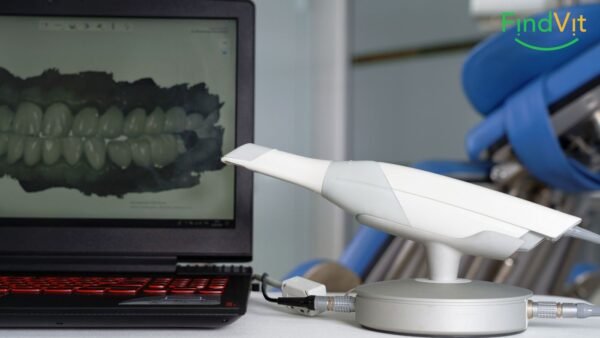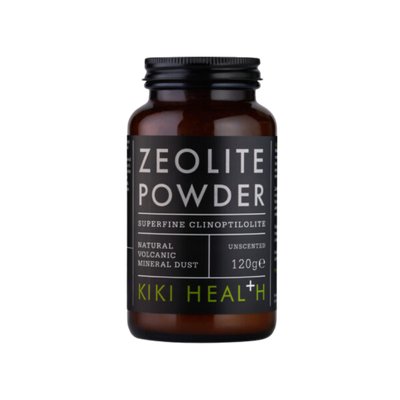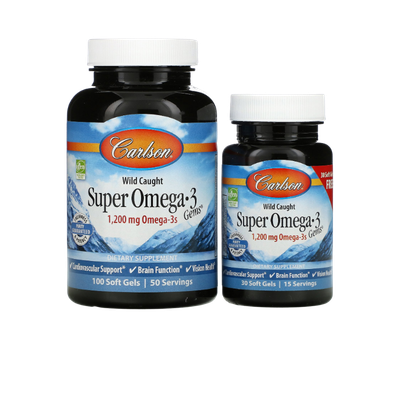Kaip Sustiprinti Širdį: Kardiologų Patikrinti Metodai Be Vaistų
Kasmet pasaulyje nuo širdies ir kraujagyslių ligų miršta apie 17 milijonų žmonių, ir šios ligos išlieka pagrindinė lietuvių mirties priežastis. Tačiau gera žinia ta, kad…

You may feel bloated even if you don't actually have a bloated stomach. Bloating is usually a digestive problem, although hormones and stress also play a role. Sometimes it is due to health problems.
Bloating is primarily a feeling of tightness, pressure, or fullness in the abdomen. It may or may not be accompanied by a visibly distended (swollen) abdomen. The sensation can range from mildly unpleasant to intensely painful. It usually goes away after a while, but it is a recurring problem for some people. Digestive problems and hormonal fluctuations can cause cyclical bloating. If the bloating does not go away, you should see a doctor to determine the underlying cause.
The most common cause of stomach pain and bloating is excess intestinal gas. If you have a bloated stomach after eating, it could be a digestive problem. It can also be a very simple reason, such as eating too fast or too much food. A common cause is intolerance to certain foods. Women's menstrual cycle is another common cause of temporary bloating. Sometimes a bloated belly can indicate a more serious health condition.
From 10% to 25%, otherwise healthy people complain of occasional abdominal bloating. Even 75 percent describe their symptoms as moderate or severe. About 10 percent claims to experience it regularly. Among those diagnosed with irritable bowel syndrome (IBS), it can be as high as 90 percent. Up to 75% women experience bloating before and during menstruation. Only 50% people who experience bloating also notice a bloated belly.
Gas is a natural byproduct of digestion, but too much intestinal gas means your digestion is bad. Although you can ingest gas by swallowing air (during meals) or drinking carbonated beverages, this gas is usually released through belching before it reaches your intestines. Gas in your gut is mostly produced by gut bacteria digesting carbohydrates in a process called fermentation.
A common solution is to use enzymes that help break down food –
If there's too much fermentation going on, it's because too many carbohydrates weren't naturally absorbed earlier in the digestive process before reaching those gut bacteria. This could be for several reasons. Maybe you just ate too much and too fast for proper digestion. Alternatively, you may have a specific food intolerance or gastrointestinal (GI) disease. Some possible reasons are:
These can be solid nutrients, liquids and gases. Digestive contents can build up in your digestive system. Any accumulation of digestive contents in the digestive tract will leave less room for the normal amount of gas to be processed. It also leaves less room for other things in the abdomen, including circulatory fluids and fat, making everything more responsive. Possible reasons:
You may have noticed that your bloating occurs on a different cycle—not so much your digestive cycle, but your menstrual cycle. If so, you are not alone. As many as 3 out of 4 women report feeling bloated before and during their period. Bloating is also a common complaint during perimenopausal hormonal fluctuations. Female hormones deserve a special mention when it comes to bloating because hormones can affect bloating in many ways—fluids, gas, digestive tracts—and the body's sensitivity to those things.
First, estrogen causes water retention. As estrogen spikes and progesterone drops, you'll notice fluid retention. This, in addition to the increased volume of the uterus just before menstruation, can cause a bloated stomach. However, hormones also interact with the digestive system. Estrogen and progesterone can cause intestinal gas by slowing or speeding up motility. Estrogen receptors in the GI tract also affect visceral sensitivity—which makes you feel bloated.
Bloating that comes and goes is usually digestive, hormonal, or both. These reasons can also make you feel sick and tired. As long as your symptoms eventually go away, they probably aren't serious. But if your bloating doesn't go away or gets worse, or if you have other symptoms of a serious illness, such as fever or vomiting, you should see your doctor for a more detailed evaluation. It can be:
If your bloating is caused by something you ate or drank or hormonal fluctuations, you should start to feel better within a few hours or days. If you have constipation, it won't go away until you start having regular bowel movements. Water, exercise, and herbal teas can help stimulate all of these things together. If it doesn't go away or gets worse, you can use quality gut supplements:
What will bring relief in the long run will depend on the underlying cause of the bloating. You may need a professional diagnosis to get to the bottom of it. But if you're looking for sure-fire remedies to help your stomach today or prevent bloat tomorrow, there are a few things you can try.
If bloating is caused by eating habits or alcohol, you can help prevent it by making lifestyle changes. Some good general guidelines include:
If the cause of your bloated belly is something more specific, such as a specific food intolerance, perimenopause, or a medical condition, you may need a little help with diagnosis, treatment, and prevention. This may include:
See a health professional if you have a swollen abdomen:
A bloated belly is not a pleasant feeling. Although this is a common experience and usually temporary. It may be worth paying some attention to the problem to determine a possible cause. Try to write down your symptoms and possible causes. Pay attention to diet, hormonal and stress factors. If in doubt, bring your notes to a professional for professional advice. The various factors that contribute to bloating can be complex and difficult to analyze, but medical tests can help. As always, see your doctor if your symptoms are persistent or severe.
More useful articles:
Enzymes are the secret key to health
Gut and psychological state. How to restore the balance of good bacteria in the intestines?
It is important to rememberthat everyone's health is individual and there is no common recipe for everyone!
So, if you want to know what nutrients your body might be lacking right now, health professionals recommend a guide – "Your Day".
Kasmet pasaulyje nuo širdies ir kraujagyslių ligų miršta apie 17 milijonų žmonių, ir šios ligos išlieka pagrindinė lietuvių mirties priežastis. Tačiau gera žinia ta, kad…

Artificial intelligence in medicine has made impressive progress – it has already successfully passed medical licensing exams and can handle internal medicine cases. Even more impressive is that special…
The human heart beats an average of more than 2.5 billion times during a lifetime. This amazing organ works tirelessly to maintain a vital pulse rhythm, the rate of which (pulse rate)…

KIKI Health Zeolitas - Ceolitas, milteliai, 60 g

Trace Minerals Mega Magnesium 400 mg. Liquid with minerals, 118 ml.

KIKI Health Zeolitas - Ceolitas su aktyvuota anglimi, milteliai 60 g.

KIKI Health Zeolitas - Ceolitas, milteliai, 120 g.

SUPER OMEGA-3 - norvegiški žuvų taukai su Omega-3, didelė koncentracija, 100+30 kapsulių
| Cookie | Duration | Description |
|---|---|---|
| cookielawinfo-checkbox-advertisement | 1 year | Šį slapuką nustato GDPR Cookie Consent papildinys. Slapukas naudojamas išsaugoti vartotojo sutikimą dėl slapukų kategorijoje „Analitiniai“. |
| cookielawinfo-checkbox-analytics | 11 mėnesių | Šį slapuką nustato GDPR Cookie Consent papildinys. Slapukas naudojamas išsaugoti vartotojo sutikimą dėl slapukų kategorijoje „Analitiniai“. |
| cookielawinfo-checkbox-functional | 11 mėnesių | Slapukas nustatomas pagal GDPR slapukų sutikimą, kad būtų įrašytas vartotojo sutikimas dėl slapukų kategorijoje „Funkciniai“. |
| cookielawinfo-checkbox-necessary | 11 mėnesių | Šį slapuką nustato GDPR Cookie Consent papildinys. Slapukai naudojami saugoti vartotojo sutikimą dėl slapukų kategorijoje „Būtini“. |
| cookielawinfo-checkbox-others | 11 mėnesių | Šį slapuką nustato GDPR Cookie Consent papildinys. Slapukai naudojami saugoti vartotojo sutikimą dėl slapukų kategorijoje „Kiti“. |
| cookielawinfo-checkbox-performance | 11 mėnesių | Šį slapuką nustato GDPR Cookie Consent papildinys. Slapukai naudojami saugoti vartotojo sutikimą dėl slapukų kategorijoje „Vykdymas“. |
| elementor | never | Šį slapuką naudoja svetainės „WordPress“ tema. Tai leidžia svetainės savininkui realiuoju laiku įdiegti arba keisti svetainės turinį. |
| viewed_cookie_policy | 11 mėnesių | Slapuką nustato GDPR Cookie Consent įskiepis ir jis naudojamas norint išsaugoti, ar vartotojas sutiko, kad būtų naudojami slapukai, ar ne. Jame nesaugomi jokie asmens duomenys. |
| Cookie | Duration | Description |
|---|---|---|
| _ga | 2 metai | _ga slapukas, įdiegtas Google Analytics, apskaičiuoja lankytojų, seansų ir kampanijos duomenis, taip pat seka svetainės naudojimą svetainės analizės ataskaitoje. Slapukas išsaugo informaciją anonimiškai ir priskiria atsitiktinai sugeneruotą skaičių unikaliems lankytojams atpažinti. |
| _ga_JWS80V051Z | 2 metai | Šį slapuką įdiegė Google Analytics. |
| omnisendSessionID | 30 minučių | Šį slapuką nustato teikėjas Omnisend. Šis slapukas naudojamas unikaliam seanso ID nustatyti. Slapukas statistiniais tikslais renka informaciją apie lankytojų elgesį svetainėje. |
| soundestID | sesijos metu | Šį slapuką nustato teikėjas Omnisend. Šis slapukas naudojamas norint nustatyti, ar lankytojas svetainėje yra naujas, ar lankytojas lankėsi anksčiau. |
| Cookie | Duration | Description |
|---|---|---|
| omnisendAnonymousID | 1 year | Šį slapuką nustato teikėjas Omnisend. Šis slapukas naudojamas išsaugoti vartotojo veiksmą svetainėje su unikaliu ID. Slapukas užšifruoja lankytojo duomenis, kad būtų apsaugoti naudotojo duomenys. |
| soundest-views | sesijos metu | Aprašymas negalimas. |
| woocommerce_recently_viewed | sesijos metu | Aprašymas nepasiekiamas. |

2 comments
Austea
Really helpful article! I've been wondering for a long time why I get flatulence so often. I learned a lot of new things that I didn't even think about. The tips are simple and easy to apply in everyday life. Thanks for the clear explanations and practical solutions!
Aurelius Mar
Great article! I always thought that bloating was normal, but it turns out that it can be prevented. Loved the advice on food choices and lifestyle changes. Now I will know what to do to feel better. Thank you!